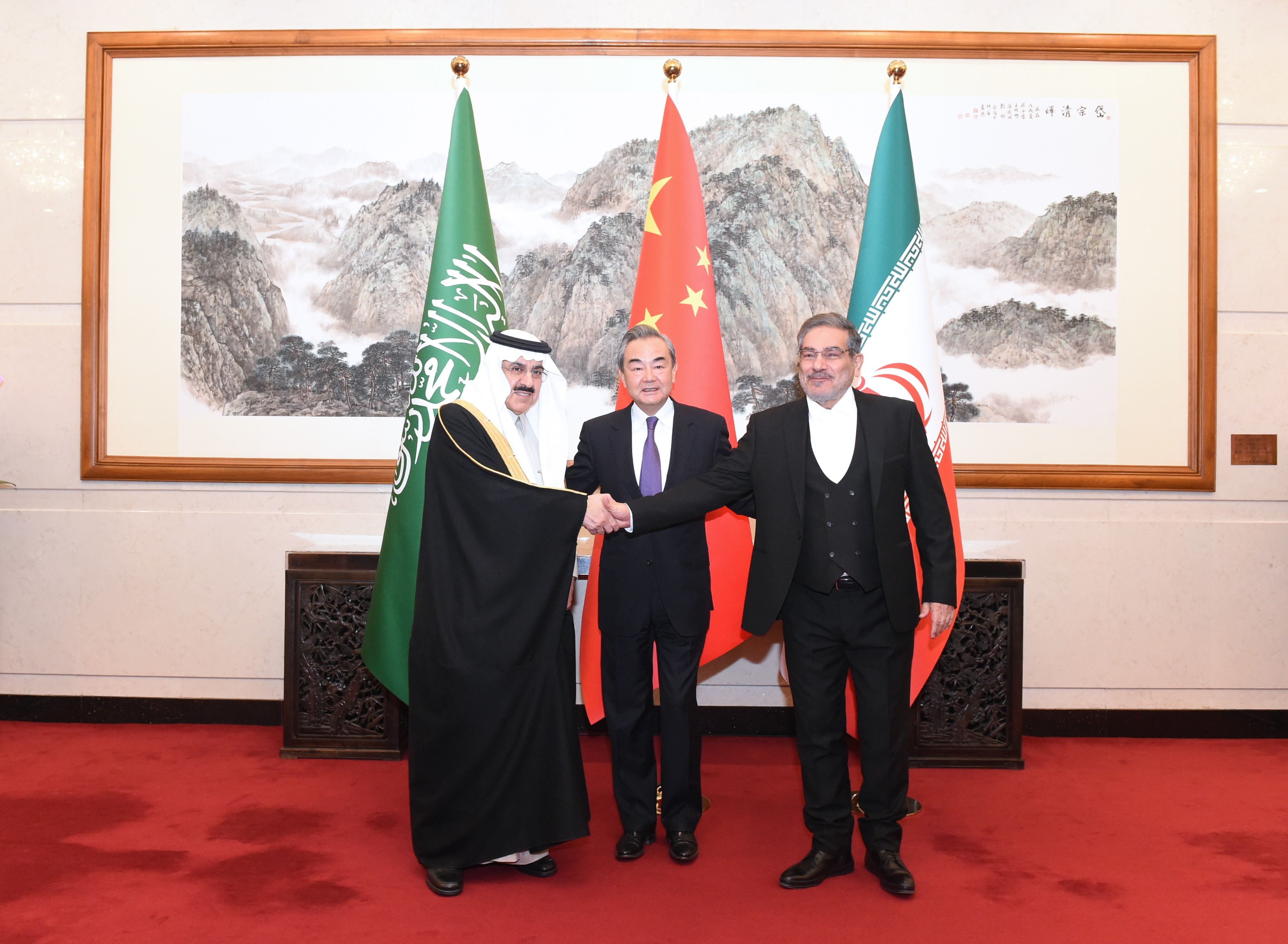The China-brokered diplomatic agreement between Iran and Saudi Arabia could have profound implications for the future of the Middle East and the relative strength of the United States' continued influence in this part of the world.
What motivated Iran and Saudi Arabia to reach this agreement now? How likely is it that the deal can move beyond diplomatic niceties and result in tangible policy shifts in Tehran and Riyadh with regard to such issues as the war in Yemen and economic cooperation? What lessons should the U.S. draw from China seemingly managing to do the near-impossible in bringing the Iranians and the Saudis together? And how might American interests in the Middle East be affected as a result of this latest Iranian-Saudi deal?
To discuss these matters, MEI is delighted to host a panel of experts from the U.S. and the region, who will attempt to separate the heated rhetoric from the facts on the ground and offer informed predictions for where these developments are headed.
Speakers
Gerald Feierstein
Distinguished Sr. Fellow on U.S. Diplomacy; Director, Arabian Peninsula Affairs, Middle East Institute
Randa Slim
Senior Fellow; Director, Conflict Resolution and Track II Dialogues Program, Middle East Institute
Sanam Vakil
Senior Research Fellow; Deputy Director, Middle East and North Africa Programme, Chatham House
Alex Vatanka
Director, Iran Program; Senior Fellow, Black Sea Program, Middle East Institute
Brian Katulis, moderator
Senior Fellow; Vice President of Policy, Middle East Institute
Detailed Speaker Biographies
Gerald Feierstein
Amb. (ret.) Gerald Feierstein is a distinguished senior fellow on U.S. diplomacy at MEI, and director of its Arabian Peninsula Affairs program. He retired from the U.S. Foreign Service in May 2016 after a 41-year career with the personal rank of Career Minister. As a diplomat he served in nine overseas postings, including three tours of duty in Pakistan, as well as assignments in Saudi Arabia, Oman, Lebanon, Jerusalem, and Tunisia. In 2010, President Obama appointed Amb. Feierstein U.S. Ambassador to Yemen, where he served until 2013. From 2013 until his retirement, Amb. Feierstein was Principal Deputy Assistant Secretary of State for Near Eastern Affairs.
Randa Slim
Randa Slim is the Director of the Conflict Resolution and Track II Dialogues Program at the Middle East Institute and a non-resident fellow at the Johns Hopkins University School of Advanced and International Studies (SAIS) Foreign Policy Institute. A former vice president of the International Institute for Sustained Dialogue, Slim has been a senior program advisor at the Rockefeller Brothers Fund, a guest scholar at the United States Institute of Peace, a program director at Resolve, Inc, and a program officer at the Kettering Foundation. A long-term practitioner of Track II dialogue and peace-building processes in the Middle East and Central Asia, she is the author of several studies, book chapters, and articles on conflict management, post-conflict peace-building, and Middle East politics.
Sanam Vakil
Sanam Vakil is the deputy director of the Middle East North Africa programme, where she leads project work on Iran and Gulf Arab dynamics. Sanam’s research focuses on regional security, Gulf geopolitics, and on future trends in Iran’s domestic and foreign policy. She is also the James Anderson professorial lecturer in the Middle East Studies department at the Johns Hopkins School of Advanced International Studies (SAIS Europe) in Bologna, Italy. Before these appointments, Sanam was an assistant professor of Middle East Studies at SAIS Washington. She served as a research associate at the Council on Foreign Relations also providing research analysis to the World Bank’s Middle East and North Africa department.
Alex Vatanka
Alex Vatanka is the founding Director of the Iran Program at the Middle East Institute. He specializes in Middle Eastern regional security affairs with a particular focus on Iran. He was formerly a Senior Analyst at Jane’s Information Group in London. Alex is also a Senior Fellow in Middle East Studies at the US Air Force Special Operations School (USAFSOS) at Hurlburt Field and teaches as an Adjunct Professor at DISAS at Wright-Patterson Air Force Base. He has testified before the US Congress and lectured widely for both governmental and commercial audiences, including the US Departments of State and Defense, US intelligence agencies, and a list of international corporations.
Brian Katulis
Brian Katulis is a senior fellow and vice president of policy at the Middle East Institute. He was formerly a senior fellow at the Center for American Progress (CAP), where he built the Center’s Middle East program and also worked on broader issues related to U.S. national security. He has produced influential studies that have shaped important discussions around regional policy, often providing expert testimony to key congressional committees on his findings. Katulis has also conducted extensive research in countries such as Egypt, Israel, Jordan, and the Palestinian territories. His past experience includes work at the National Security Council and the U.S. Departments of State and Defense.












